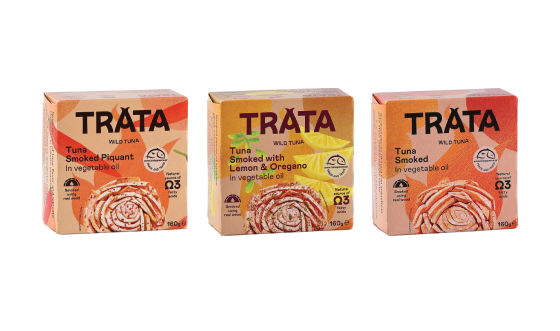We are interested in protecting your privacy and especially Personal Data that concern you. For this reason, we want you to know how we gather, use, and possibly share knowledge of your data.
Personal Data
For the use of our services, the gathering of personal data or user identification information (PII) is necessary. In addition, some data may be stored that provides information concerning the way that you visited this website and when (for example, the website from which you connected to this website, the date of your visit, etc.). This data is stored in order for us to improve the quality and content of this website.
Your data may be used in order to recognize a user in a unique way, among other reasons, for the purpose of displaying targeted advertising, messages, or content.
Information Provided by You
During your navigation on our website, you may be asked to submit your personal information in order to benefit from certain services or provisions of ours. For example, when you use the contact form on our website for issues concerning the functioning of the website and the services provided by us and when you provide your consent for promotional communication and news concerning our products or our services. Furthermore, our company gathers your personal data on the occasion of your participation in events or other promotional actions of ours such as lotteries, competitions, or special offers.
During your interaction with our website, certain data are collected automatically from your device or the Internet browser that you are using. These data include the following:
Device identification numbers, call status, network access, storage information, and battery information
Cookies, IP addresses, referrer headers, data identifying the Internet browser and its version, as well as images collecting statistical data (web beacons) and tags.
Read the Cookies Settings and check the Table for detailed information on this topic.
Why and How We Use Your Personal Data
We use your data for the following purposes:
In order to respond to your requests for information concerning the services and/or products provided by us.
In order to improve and maintain our business activity, our products, and our services.
In order to send you promotional communications, information, or material that may interest you, in the context of the advertising and promotion of our products and/or services.
In order to gather statistical data about visits to our website.
In order to detect, prevent, and deal with fraud or other illegal activity.
In order to protect our rights and assets or those of third parties.
In order to evaluate the effectiveness of our events and other promotional actions of ours.
Other purposes: your data may be used in other ways. In this case, we will provide specific notifications for your information when we gather data, while we will secure your consent before their processing, wherever this is required.
In order to achieve these purposes, we will proceed to the collection and general processing of only the amount of data that is necessary, relevant, and suitable for the purposes of processing.
Legal Basis
In order to process your data, we base ourselves on certain legal bases in accordance with the form of your activity on our website.
The processing of personal data for purposes of direct commercial promotion takes place in order to serve our lawful interests. Furthermore, in case of collection of Personal Data that concerns you, either through the use of our contact form, through reception of informational or promotional communication, or due to your participation in a specific activity (such as lotteries, events, or other offers), your consent will be requested in each particular case. If you wish, you may obtain the data of your own declaration of consent (date, time, etc.). It is possible for you to revoke your consent at any time without retroactive effects. If you wish to revoke your consent, you may send an e-mail to the address [email protected]. Finally, we also base ourselves on other legal bases, such as our lawful interests, compliance with a legal obligation, or the execution of a contract.
Processing of Personal Data
Northern Aegean Canning S.A., as a party responsible for data processing with or without the assistance of automated methods, will have a file available to it and will process your personal data. Your data will be stored in a form that allows your identification as their subject only for the period of time required and exclusively for the purposes of each instance of processing. Only their lawful recipients (for example, authorized employees) have access to these data whenever this is considered necessary.
Your data may be transferred to other recipients who will be acting in our name and on our behalf in the framework of the implementation of a contract for the achievement of the above lawful purposes (for example, advertising companies, external associates of our company).You may submit a request for the data of the recipients to the address [email protected]. Beyond the above, your data will not be forwarded to third-party recipients or to third countries for commercial or non-commercial purposes, without you being informed beforehand and without your express consent.
Your data will be kept for two years after their storage, unless their maintenance is required by European or Greek legislation.
Your rights in accordance with the General Personal Data Protection Regulation (GDPR):
- You have the right to know whether the personal data that concern you were or will be the subject of processing and in all cases, to require Northern Aegean Canning S.A. to correct your personal data if these are incorrect or to add to them if they are incomplete. When your personal data are updated, you may be asked to verify your identity before we can satisfy your request.
- If there is no express consent on your part, no decision will be taken exclusively based on automated processing, including the setting up of a profile. You may receive the personal data that concern you in a structured, commonly used, and machine-readable format, and you may also transfer them, subject to the legal prerequisites, to another party in charge of processing, as long as this does not have an adverse impact on the rights and freedoms of others.
- Subject to the conditions set by the law, you may request their deletion, as well as, in some cases, the limitation of the processing to which they are subject.
- You have the right to express any objections to the processing of data that concern you.
- At any moment, you may object to the processing of your data for the purposes of direct commercial promotion, including the development of a profile, if this is related to direct commercial promotion. If the above right is exercised, your personal data will no longer be subjected to processing for these purposes.
- You have the right to object to and request the limitation of certain acts of processing of your data.
- You have the right to address yourself to the Personal Data Protection Authority if you consider that your data are undergoing unlawful processing.
How to exercise the above rights:
In order to exercise your rights, as well as for any information concerning the processing of your personal data, you can submit a request to the e-mail address [email protected]. As a rule, your request will be satisfied within one month of receiving it. Information, all announcements, as well as all actions undertaken in accordance with Articles 15 to 22 and 34 of the GDPR, are provided free of charge.
Security
Northern Aegean Canning S.A. applies suitable technical and organizational measures in order to ensure a suitable level of security from danger for your personal data. However, no information system is 100% secure. For this reason, we cannot guarantee the complete security of your data.
Confidentiality Policy and Children
This website has been designed and is destined for use by adults. If you are a minor below the age limit requiring parental consent in your country, the conditions of the present Confidentiality Declaration must be inspected by your parent or guardian, who will subsequently grant his or her consent. If it is observed that we have gathered information from a minor without the consent of his or her parent or guardian, while such consent should have been received, we will delete the information as soon as possible.
Access to certain areas of the website and/or the possibility of receiving prizes, product samples, or other gifts may be limited for users below a certain age. We may possibly use your personal data in order to verify your age and apply these age-related limitations.
IP ADDRESSES
The IP address through which the visitor, user, or member's computer accesses the network and subsequently our website or application is stored and may be used by this page, if necessary, in cases of violation of the Terms of Use of the website or application by a visitor, user, or member.
Social Media Networks
It is possible that our website may provide the possibility of sharing on social networks and other relevant tools that allow you to share your actions on the website with other application, websites, or media, and vice versa. The use of such features permits the exchange of information with your friends or the general public, depending on the settings that you have established in your personal profile. Please refer to the confidentiality policies of these social networking services for more information about how they handle your data.
Special Categories of Data
We ask you not to reveal any sensitive personal information of yours to us by e-mail. The processing of this category of personal data does not serve the purposes of data processing, as they are defined, in any way.
Links
Our website may contain links to other websites. The present declaration concerning the protection of personal data does not apply to the user's access to other websites.
We inform you that this policy may change from time to time. Changes will appear here. Before any modification of the present policy, we will inform you and you will be able to inspect our revised policy before you choose to continue to use our services and products.



